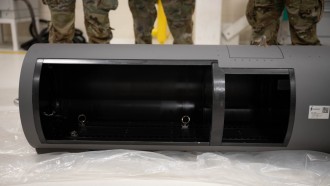In a remarkable discovery in a Costa Rican zoo, scientists found the first self-pregnant crocodile. An 18-year-old female American crocodile at Parque Reptilania produced a genetically identical fetus, a phenomenon known as "virgin birth" or parthenogenesis as it is known in science.
Similar reproductive strategies have been observed in birds, fish, and other reptiles, but this is the first instance in crocodiles, according to the BBC.
This unique characteristic may have been acquired from an evolutionary progenitor, suggesting that dinosaurs and potentially pterosaurs might have self-reproduced.
This discovery sheds light on extinct archosaurian cousins' reproductive capacity and the ancient planet.
When the female crocodile deposited an egg in January 2018 that contained a thoroughly developed but stillborn fetus, it was intriguing to note that this crocodile had been purchased when she was only two years old and lived apart from other crocodiles.
The scientific team at the park partnered with a specialist US team from Virginia Polytechnic, known for their knowledge in the study of parthenogenesis, after realizing the importance of the discovery. The fetus was 99.9% genetically identical to its mother, proving the absence of a father.
Read Also: Marc Andreessen Addresses Concerns of AI Doomsday
The Significance of The Discovery
Although the eggs did not hatch, the finding has fascinated researchers since it provides information on the shared evolutionary roots of this uncommon reproductive technique across reptiles, crocodilians, and birds. Additionally, it raises fascinating concerns regarding dinosaur and pterosaur reproduction, per The Independent.
The Royal Society Journal of Biology Letters reports that confined reptiles commonly lay non-viable egg clutches owing to isolation from possible partners.
Thus, this crocodile's virgin birth discovery proposes that eggs without males should be tested for viability. Potential partners may have ignored virgin births, primarily when females reside with males,
Parthenogenesis continues to occur in several animals for unknown reasons. According to a widely accepted notion, it can happen as a last-ditch attempt to avoid extinction when a species' number declines.
Related Article: Killer Whales Wreck British Sailor's Yacht; Authorities Take Action on Orca Attacks









